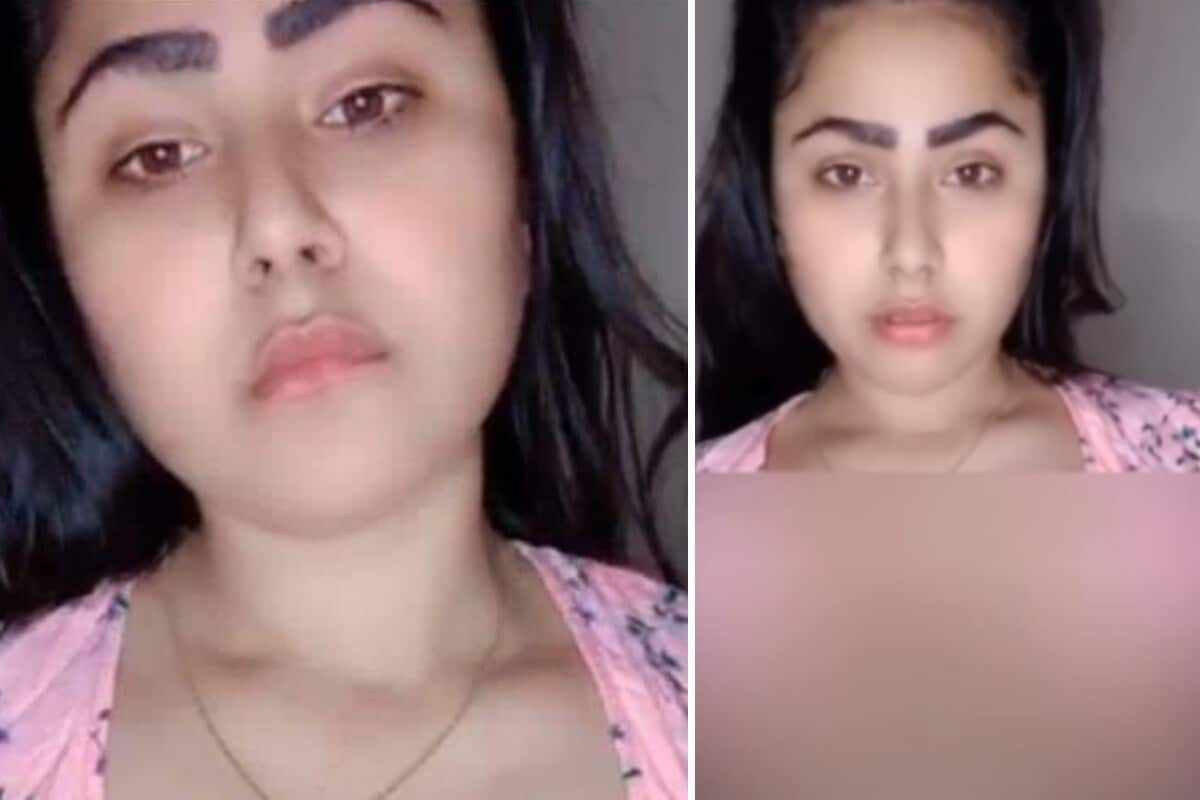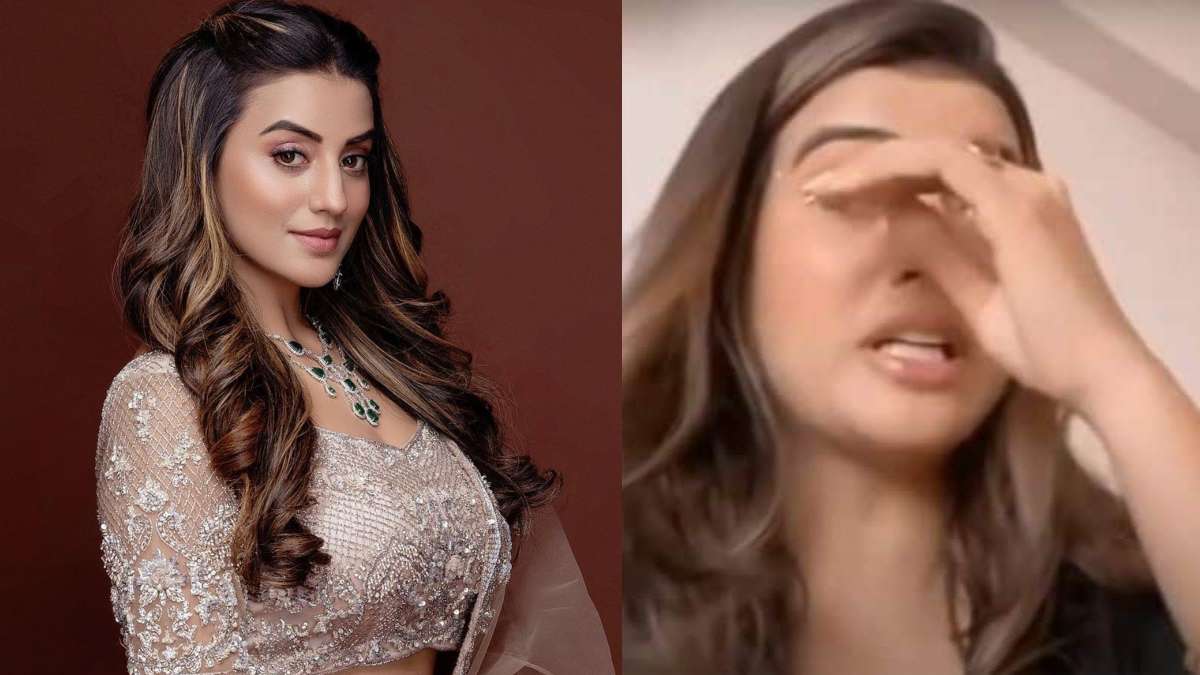Anjali Arora MMS Case: Latest Updates & Defamation Lawsuit
How far can the digital world's shadows stretch, and at what cost? The recent wave of viral "mms" scandals, particularly those targeting public figures, forces a stark examination of online ethics, privacy, and the devastating impact of digital defamation.
The year 2022 witnessed the relentless spread of a morphed "mms" video allegedly featuring social media star Anjali Arora. This digital transgression, which swiftly went viral, sparked a legal battle and ignited a wider conversation about the perils of online privacy and the repercussions of digital manipulation. The incident, and the subsequent fallout, underscores the vulnerabilities of individuals in the face of malicious online campaigns.
The case of Anjali Arora is a poignant example of how quickly a person's reputation can be tarnished in the digital age. The doctored video, which surfaced in August 2022, depicted an explicit scene with Arora's face superimposed onto that of an adult film actress. This act of digital deception, a blatant violation of her privacy and a calculated attack on her character, had far-reaching consequences.
The impact of this violation wasn't limited to the immediate shock of the viral video. Reports indicated that Arora suffered significant losses in work opportunities. The very foundation of her career, built upon her public image and social media presence, was threatened. Beyond the professional setbacks, Arora endured immense mental trauma, a burden carried in silence by many who become victims of online harassment and defamation.
Arora's response was swift and decisive. She initiated legal action against news portals and YouTube channels that shared the morphed video, launching a defamation case against the media houses responsible for amplifying the damage. This legal recourse represents a courageous stand, a fight to reclaim her reputation and hold those responsible for the harm accountable. While the legal proceedings unfold, the case serves as a reminder of the importance of media responsibility and the need for robust regulations to combat digital exploitation.
The repercussions of such incidents extend far beyond the individuals directly targeted. They cast a long shadow over the digital landscape, breeding fear and distrust. The widespread dissemination of manipulated content erodes public trust in information, creating an environment where authentic news and factual reporting are undermined by the proliferation of deceptive and malicious content. The ease with which such videos are created and spread highlights the need for constant vigilance and critical evaluation of online content.
The case also touches upon the sensitive topic of consent and agency. The manipulation and distribution of such videos constitute a profound violation of an individual's right to privacy and autonomy. The act of morphing, where someone's image is superimposed onto an explicit scene, strips them of their agency and subjects them to unwanted scrutiny and violation. The debate extends to ethical boundaries in content creation and sharing online, reinforcing the need for respectful and mindful interactions within the digital realm.
The incident served as a stark reminder of the vulnerability of individuals in the face of online harassment and defamation. The widespread dissemination of manipulated content eroded public trust in information, creating an environment where authentic news and factual reporting were undermined by the proliferation of deceptive and malicious content.
To better understand Anjali Arora's background and the challenges she faced, consider the following information:
| Category | Details |
|---|---|
| Full Name | Anjali Arora |
| Profession | Social Media Influencer, Actress |
| Known For | Viral Social Media Presence, Appearance on "Lock Upp" |
| Controversies | Morphed "MMS" Video (August 2022) |
| Legal Action | Filed defamation case against media houses and YouTube channels |
| Impact | Loss of work opportunities, mental trauma |
| Notable Work | Lock Upp |
| Official Social Media | Anjali Arora Instagram |
The issue of viral "mms" videos isn't confined to a single individual. The case of Sona Dey, another social media influencer, also drew attention. A viral clip allegedly featuring Dey circulated online, leading her to address the issue directly. This echoes the experiences of others caught in the crosshairs of online malice.
The incident involving Karmita, where a viral clip was circulated, further underscored the challenge of proving the authenticity of digital content. Karmita's insistence that the woman in the video was not her, along with her supporters' defense, highlights the potential for misinformation and the challenges individuals face when falsely accused. The swift denial and clarification provided by these individuals, and those supporting them, demonstrate the urgent need for more robust methods of verifying the authenticity of online content.
In 2024, the proliferation of such scandals continued. Private videos involving influencers and celebrities like Oviya Helen, Minahil Malik, and Pragya Nagra surfaced online, once again dominating headlines and sparking debates about privacy, consent, and the ethical limits of online sharing. The frequency with which these incidents occur underlines the need for proactive measures to safeguard the privacy and dignity of individuals online.
The legal recourse taken by Anjali Arora represents a proactive measure, an attempt to reclaim control and seek justice. Her statement, Izzat ke saath mat khelo, meri bhi family hai, encapsulates the emotional toll of the ordeal. This highlights the human cost of these online attacks, the hurt inflicted not only on the individual but also on their family and loved ones. It is a plea for empathy, a recognition that those behind the screen are also human beings with feelings, families, and lives.
The Pakistani tiktoker's leaked "mms" video that dominated global search trends also illustrates the widespread nature of the problem. This, along with other examples, underscores the need for a concerted effort to create a safer, more respectful online environment. Discussions about these incidents sparked heated debates across national boundaries, further showcasing the universal nature of these digital challenges.
The rapid spread of these videos, often accompanied by calls to action, underscores the responsibility of social media platforms and content creators. The sharing of unverified, potentially damaging content raises complex ethical considerations. The responsibility for preventing the circulation of such content is multifaceted, encompassing both individual and platform-level action.
The incidents also bring to light the darker side of social media, the anonymity and reach it provides to those who would seek to inflict harm. The ability to create and spread content anonymously amplifies the potential for malicious attacks. The ease with which content can go viral means that even the most well-intentioned individuals can become victims of digital attacks.
It's essential to recognize that those targeted by these videos are not merely public figures; they are human beings. The emotional and psychological toll on those targeted in these incidents can be devastating, impacting their mental health, personal relationships, and careers. Therefore, media outlets and social media users should prioritize ethical reporting and sharing, treating these matters with sensitivity, respect, and caution.
The evolution of the internet has undeniably transformed society, but this transformation has also brought with it new and complex challenges, including issues of privacy, defamation, and misinformation. While technology offers incredible opportunities for connection, it also creates avenues for misuse and exploitation. It's crucial to address the dark side of the digital world in order to protect the well-being of individuals and promote a more just and respectful online environment.
The legal battle that Anjali Arora has waged against those who have defamed her is a testament to her strength and resilience. It is a step towards accountability and a reminder of the need for digital literacy, ethical media practices, and robust regulations to protect individuals from digital harm. It represents a crucial part of a much larger effort to create a safer, more responsible online environment.
As the lines between the digital and physical worlds blur, these types of incidents serve as stark reminders that the actions we take online have very real-world consequences. It's essential that society collectively confronts the challenges posed by online manipulation, defamation, and exploitation, in order to protect the privacy and dignity of all.
The recurring nature of these incidents suggests a need for a paradigm shift, from merely reacting to these incidents to proactively creating a safer, more responsible online ecosystem. This involves a multi-pronged approach, encompassing individual awareness, media literacy, platform accountability, and effective legal frameworks.


